
How do you deal with the world when you’re always about to explode, because the image of the future is an exploding world? I don’t have the tools in my system, my intestines, to deal with the reality of now. If this is reality, it might be a suspension of reality. And you know what it is if you’re a human in the now, because how could you not? The reality of what is happening now is so gut wrenching, so abnormal, allowing anyone to say anything to anyone, in everyday life, which is where we live. I finally managed to fall asleep hearing, not listening to, her speech, this woman who neither appealed to me nor disgusted me, her voice fading into nothing down there on the laptop on the floor. But I couldn’t listen to her speech acknowledging an unacceptable loss in something that could easily be defined as a democratically organized coup d’état. This is serious, I realized, and you should know what I’m talking about, the fatal blow to the future of our planet. Eight years ago: triumph. An absurd sense of relief after a campaign proclaiming hope and stable belief in real change. It was nice. At least it was real, but what I feel now is unreal, this president elect. A hypocrite demagogue representing a hyper-normal world that never existed, which never will exist. This horrible human error. And this assault doesn’t even take place in my nation, not even on my own continent; it is an assault in which we are powerless. Indeed, we appear to have forgotten our own continent while embracing the power and force of a nation that ceaselessly overwhelms us – in economic terms, in practical terms – a nation that monitors us, knows everything about us, and uses that information for its own gain. This is the apparatus the president elect inherets. Swamped in these emotions I wander into the situation of conducting an interview with Laurie Anderson, in Oslo to show her film Heart of a Dog; what interview hasn’t she made? She’s been interviewed by Charlie Rose for God’s sake. It’s like interviewing David Foster Wallace combined with Patti Smith combined with Siri Hustvedt, if information as statement is what you´re longing for. But I’m tired of quotable statements, too washed out from drama, to distill them. Aren’t you? Aren’t we all? At least Laurie seems tired of them as she sits down in front of me, her X-ray eyes piercing my membrane, and I tell her:
I haven’t slept so well lately, to be honest.
Why?
I don’t know. It’s been like this a while, ever since the night of the election.
A state of huge anxiety. For everyone. You should try to get some sleep, because you’ll think about it better. With rest you’ll be able to understand it.
I slept well last night.
Why is that?
I watched your movie, Heart of a Dog.

Ah. OK!
After watching it I fell into a deep sleep. It’s very calming, your movie, I think.
I’m glad it helped you sleep. It’s a terrible thing not being able to sleep. I had to do a show until two last night, and then get here, so I’m crushed myself. I’m really looking forward to a coffee.
You were doing a performance until two last night? In New York?
No. Where was I? Copenhagen.
You’re doing a tour?
No. I spent a week in the studio with Brian Eno. We just recorded things. It was a collaboration with Copenhagen Main Library. They said: “Let’s see what happens if you just play for a week.” So we did. I learned a lot about music, and time especially, because we would play no matter what. No matter what happened we would continue, which was Brian Eno’s idea. Even if we had lousy sound and no ideas, if it sounded like clichés, or just limp, he would say: “No, don’t stop.” As a musician, I would absolutely stop when I don’t have an idea and the sound is crap. But we weren’t allowed to stop. We kept playing and we kept playing. Eventually something very beautiful would happen, almost always. It could be very fleeting. So when I get home tomorrow I’m going to redesign my whole studio to make it more like that experience, more open, to acoustics, more gadgets, more places to move. Like a lot of things, you get more and more and more restricted until you just do typing, which takes a lot of the wildness out of it, if you don’t move. We tried to move a lot. That helped. Then, after we recorded for three straight hours, we would sit down and listen to it for three straight hours again. I had never done that.
You worked like this for a week?
Yes. We made a colossal number of hours of music, quite a lot of it insidious noodling, some of it really beautiful. So we played it last night at the library. It’s fun to play music at the library, to crank it up, when you’re supposed to hush. It was real fun. We played a few random kinds of things, it tended to be really mixed, and then we talked about things.
What did you talk about?
We talked about recording techniques. I told a story about, or more summarized, a play that I like. We also talked about how there are so many borders between things. Brian Eno did a really beautiful thing called The Quiet Club, very quiet music played in this space which rendered it acoustically very beautiful. You could just go in and listen to this music that went on and on, and be an equal, which is a really wonderful experience. He’s designed things for high-stress venues, such as airports, but he’s also made these clubs where you use your ears differently. There was a surgeon who came to this quiet club. He said he really wished they had these things in the hospital, to get privacy and quiet in a very noisy context like that, which is high-stress as well. You want to go to the hospital chapel, and what if you don’t want to look at a cross or the Quran? What if you just want to be quiet? Two weeks later The Quiet Club was installed in the hospital. In the United States the walls between music and medicine are much thicker than that. You can’t really say: “Hey! We’re some artists over here. And we’d like to do something in there.” What I loved about the Copenhagen experience was that it was initiated by the library, which created cross references between sound and story, because we started talking about boundaries, which is why I mentioned this play. It’s a comedy by Aristophanes, written in 413 BC, called The Birds. It’s a comedy about building walls. We’ve just been living through the comedy of the president elect’s plan to build a wall between the US and, as he says; “the southern exposure”, also known as Mexico. Do you know this play?

No, I’m sorry to say I don’t.
It’s very funny. The play starts out with two poets, and they’re leaving Athens because they’re sick of the poetry scene. They’re thinking all the poets are idiots, so full of themselves, so fake and so boring. Nothing is going on in the scene. So they’re treading out of Athens. These birds are swirling around, and one of the poets says: “Wait a second, I’ve got a great idea, an idea for the birds. I’ve got to get them together and tell them this idea.” So they gather all the birds from all over the world for this meeting; starlings, pigeons, robins, parrots, a few penguins. Everything. Thousands of species. Huge numbers. The poet goes: “Hey! I’ve got an idea. It’s an economic opportunity for you. I have to ask you a question, if you’re willing to do this: When the gods come down from heaven to have an affair with a human boy or a human girl, they come down through where? Through your area.” The birds just can’t focus, because they’re birds, and the crowds of birds don’t work that well either, because they’re slightly impeditive, their little wings mingles. The poet says: “Here is another question: When the humans do sacrifices, the smoke from their fires comes up through where? Through your area. It belongs to you. And do you charge any money for that? So here is what you’re going to do: You’re going to build a wall between heaven and earth, because the gods and humans can’t go through boundaries and barriers and borders for free. You’re going to charge a lot of money. You got it?” The birds are all whispering among themselves. Then one of the birds says: “Here is the thing…” And he can’t get his thoughts together, since he’s a bird, so it takes a lot of time to formulate this: “Building a wall is work, and you can see that we’re birds, so we don’t work.” It’s the end of his statement. The birds are all: “Right on!” So last night, since this is a library, and there are many versions of this play, I told them I wasn’t going to tell them what happens in the end when they build a wall between heaven and earth. You’ll have to go and read the play, I told them. That didn’t come across that well. People were all: “Why the hell not?”
Then you shouldn’t say it here either.
No, I won’t. Go read the play, The Birds by Aristophanes. A work of genius.
Talking about a wall… The great wall of America…
The great wall of China. The great wall of Berlin. The great walls which are being built in Austria now, and Belgium now. The Palestinian wall.
There’s another wall I’ve been thinking about lately. I went to this gathering in Oslo yesterday, and it seems like the situation is already normalized. It’s strange that it should affect Norway to this extent.
No, it’s not strange.
Half the population at some point in history left for America. Our identity rest as much within the American union as the European union. Someone would even call us the 53rd state.
What are the 51st and 52nd?
The 51st is England, they say. The 52nd is Israel, I guess.
Do you pay US taxes, just asking?
No.
Then you can’t be the 53rd state.
No, not at all, and what I’m referring to here is left wing conspiracy talk. But the relationship is extremely strong – economically, culturally and spiritually. In your movie Heart of a Dog you talk about this situation, post-911, in New York. These posters saying IF YOU SEE SOMETHING SAY SOMETHING.
Homeland security slogan. It’s their slogan.

On that topic, in your film you quote Wittgenstein, his thesis that language can create worlds. Are you worried about the language which will be generated after this election?
Yes. It has already been generated. It’s also what I saw in Venice when I was there for the movie festival. I watched twenty-seven films at the festival, and they were all so violent, so violent. I had decided not to walk out of any film, but I walked out of one, because I couldn’t torture myself for another hour there. I watched two hours of the most violent thing I’ve ever seen. The world is made of stories, principally, even more than objects. Even more than situations, the world is made out of words. The election was about that, about stories, which candidate had a story about what the world is, what the world was, what the world will be, could be, should be… It doesn’t have anything to do with so-called reality, not particularly, because it’s a story. You vote for the one whose story you like the best, not spending some time trying to match the information with something you’ve actually seen. The way you get information is very niche. I think this election is more about Facebook and information than anything else. How people get their information, where they get their stories, to the point of discrediting every single thing. I don’t know if you’ve followed the “crisis actors”?
Crisis actors?
OK. Here’s another one for you… Crisis actors. Look it up. They are people who supposedly are actors, because Sandy Hook never happened, the shooting of the kids in the school. The claim is it was all done by actors, by little child actors and crisis actors. The crisis-acting movement shows you different faces as they appear in different scenes. See, that person there is acting like a judge in the courts in this image, while in that image she’s acting like a school teacher who’s just been shot. They compare photographs of things. Basically they say Sandy Hook was staged to soften up Americans on the terms of guns. The level of insanity that passes for information is now totally accessible for everyone. So, what you see is mass dementia. Mass insanity.
Mass insanity? It has gone that far you think?
Yes. It’s mass insanity, using the word insanity in the sense that you no longer know what source to trust. For my group of Americans, who really believed we were so right … We were going to be the ones who did the revolution. Well, guess what? They did the revolution that we were planning on doing. And never quite got around to.
Who are they?
They are poor, white people. Poor, angry and disenfranchised white people who are about to be double-crossed by the guy who says he’s going to save them.
I was shocked, when making a documentary about the 2004 election, that this myth prevailed, even after the election, that John Kerry was gay.
They say it. And then you say it. Then it becomes true. “Isn’t he gay? He isn’t gay is he?” Then he’s suddenly gay. They say gay, and that’s it, he’s out. That election was lost on words too, or really songs, because Kerry lost on one question in the debate. A simple question. They asked Bush: “George, do you love your wife?” George takes out his banjo: “I met her in a barbecue. She’s the most beautiful girl I ever saw. I love her now. I always will.” And you’re like… OK. Thanks, George. Then on to John. “You love you wife, John?” He pauses and his lip quivers, like when someone think they’re going to say something clever, suppressing a smile. “Well, I married up,” he says. John, you just lost. Don’t say that about your wife, that you married up. And then “…like my mother…” John, strike two. Don’t put your dying mother in the same box as your wife. We’re not talking about your mother, John. We’re talking about your wife. “…like my mother said on her deathbed.” Strike to you John. Death? No. John. Integrity. Integrity. Integrity. And I thought: That guy just lost so badly.
But you’re right, it doesn’t matter. You can say the most outrageous things, and you can go far beyond what anyone would say. And that’s just what we saw. We’ve always been snobbish as Americans about the thirties in Germany, how it dismantled there. And now we see exactly how a mentally ill person can get into power. We see exactly how it can be done, with the same techniques using the media, using language, using this whole package of fear, and hatred, and suspicion, and music and money. And you go; now I see, now I see. What kind of idiots are we? We just didn’t see what was coming. All our media were completely off. Completely off. They were predicting something which was a dream world. An absolute bubble. Also, it was a very squeaky close election, in which Hillary Clinton won the popular vote.

It reminds me of Gore and Bush.
Exactly.
I remember feeling sad even then, as a teenager, because it was totally obvious who was the good guy and who at least was the suspect one, but it’s not like now. This is extreme. Isn’t it?
This is beyond extreme.
I was just going to watch for half an hour and go to bed, but ended up not sleeping for eleven days.
Welcome to the club. And now, he declared New York his surrogate White House – The Trump Tower. Which means the end of my city. Already it’s ringed with armored cars, helicopters over the tower, and a two-mile no-fly zone. They just made a new capital. He’s not going to Washington and live in this crony house. He’s going to rule from there. Did you follow the Hamilton?
You just stole my next question.
Let’s see if he’ll apologize.
Now he’s tweeting against actors pleading with the vice president to take care of Americans, and he tweets that they should be ashamed. It’s a disgrace. What can artists, young or old, do in this kind of situation?
They can lay down and shut up.
You think so?
That’s what they can do, according to Don. Lay down and shut up. “I’m in charge here. Who do you think you are?” That’s what it is.
What do you think we can do?
I don’t know.
You don’t know? Society acting as one individual in this bloated body. I never had this kind of fear.
No one did. This is a brand new one. It’s brand new, and there’s immense dread, and you’re not alone in feeling the dread. There’s a reason to feel dread.
In every news outlet, in every article, his name is mentioned.
Exactly, I’ve spent a year looking at my phone, kind of going: “He said that?” And being entertained. And then going: “OK, I’m addicted to this, and now I’m in jail for four years, minimum.” Along with everyone else.
There are a number of things you can do. One of the things that has been great for me, for my own survival, my sense of what I’m doing here and what I care about, is work. I spent the last week only thinking about music. That was all I talked about. That was all I did. It has made me want to dive into my work in ways that I haven’t been in certain ways. I go through a lot of periods, as many people do. Of course I’m going to be in the marches, but I’m not going to do this every day, on my phone. I’m not going to monitor. I’m going to try to refocus myself, and try to find a way to live in a state of dread and hope at once. Maybe not hope, because I don’t think that’s appropriate, I think I’d just say happiness instead.
Calm?
Not specifically that, because working for me is not necessarily calm, it’s very exciting sometimes. It can be really agitative, but when you discover something there’s nothing better. But I do it partly out of resentment of a political situation that rips you out of that, and takes over your mind in a way that is just violent.
Kidnapping your mind.
Yeah, so how do you get your mind back?
Sleep.
Sleep is number one. No. Love is maybe number one. Sleep is two. Love is number one, to try to find it. Everyone is, including myself, trying to weigh in on things to believe in and motivate you, to define what you care about, against this new world. Suddenly you’re living in a new place. In New York everything is different. Absolutely everything is different. A world you couldn’t have imagined has crawled up from under what rock? How could this have been living all of this time? You kind of think fascism was something that was trashed many decades ago, when we grew up.

Fascism reborn.
It might seem like it’s new, but it’s not new, it’s kind of the same stuff: People who want someone to tell them what to do, listen to their problems, then you have a bunch of people like us on the other side, who are clueless. I blame myself for that.
You feel responsible?
Not to society in general, but to myself, for not noticing that we no longer had a middle class. Maybe five or six years ago I spent a lot of time going to tent cities, just looking at them, being impressed. Then they just started being broken up, dispersed and shoved under the rug. But they can’t be shoved under a rock, anywhere in the world.
I lived in the parallel street to Skid Row in Los Angeles. I’ve never seen a scenario like that anywhere in the so-called third world.
There are many Skid Rows, and many destroyed cities in the United States, where everyone is on drugs and everyone is hungry.
It’s like the safety net has evaporated.
Every man for himself.
Maybe we all became a bit numb, a bit lazy in the Obama years, overwhelmed by the Bush era?
Not just a bit lazy. I was walking in Copenhagen, looking at my phone. I shouldn’t have been looking at my phone while I was walking, but I had to look at the map for a second. Two guys came up to me and yelled: “YOU TWO FUCKING ZOMBIES.” The door opens to being violent to other people. It’s a big door. Like what happened to a friend of mine recently; three guys leaning out of the window of a car and go: “HOW DO YOU LIKE TRUMP, FAGGOT?” It’s OK to talk like that now. It’s OK. It’s the way people talk now.
But you can’t debate with these people. You just have to stick with the old language?
I don’t know yet. I don’t know one single person who voted Trump. So my goal is to meet some people who voted for Trump. It’s completely set up. It’s completely polarized. I don’t really want to be polarized. I would like to see. It’s not going to be helpful to make it “us and them”. It’s going to make it worse.
Are you going to try to change their minds?
No, I’m not going to try to change their minds, just try to be an anthropologist. No. That sounds too cold and clinical. I’d like to put myself in the situation where I’m not so completely isolated. That would mean principally getting out of New York, trying to poke around, and maybe that’s part of a project that I’ll do. I don’t know.
Back to the Midwest, like you’re talking about in Heart of a Dog?
No, I don’t think I’ll ever move back to the Midwest. It’s nice there, but I’m talking about spending time, to see what’s on their mind.

Without giving the phenomena attention?
It’s more personal than the phenomena. I’d just like to meet someone, and not feel like I have zero idea of anyone who voted that way, and not feel so alienated. It’s completely eerie to be this weird minority. All the people who are in this situation are used to being the majority. They’re used to being the ones in power. So, it’s a major shock.
It’s not that different to what happened in Germany in the thirties.
No, I don’t think it is. The guy who was a joke suddenly has all power. You think: “No, no, it’s not going to matter.” But… It’s just the beginning. It’s not something which is going to be, like you said, normalized by anyone. This is not normal. It’s not a normal thing. It’s a tragedy. On the other hand, maybe the tragedy is the bubble. The more I think about it, it’s more about information than people’s actual beliefs, because when the head of FBI says; “we’re investigating Kennedy ”, on social media that translates to; “she’s a criminal.” She’s a criminal. You can’t vote for a criminal. It’s a manipulation of stories. It’s all about stories. So maybe we just have to come up with better stories. His stories were short and brutal. Anyone who had to face him crumbled. All of the candidates crumbled.
So what we need is a longer and quieter story?
I can’t say what we need. I think we need a lot of people to think about what we need.
And talk about it.
And maybe just start doing it, instead of talking about it, because there are an awful lot of seminars with people talking about what to do. Just stop talking about it. Just do something. Put something into action as soon as possible, something that would really make a difference. Don’t have any more seminars or late night discussions about it. Don’t live in the world of words.
*
I remember seeing Laurie Anderson Live in New York in 2012, the year the world was supposed to end according to superstition. I was awestruck. The performance in itself was messy, unfocused, a bit out of my mental sphere to be honest. But there was one incident where Laurie Anderson started reciting the Tibetan Book of The Dead. She said something I will never forget:
The first time you die is when your heart stops.
The second time you die is when you’re buried.
The third time you die is the last time someone mentions …
Audio lag.
Dark voice.
… your name.
Then the lights went out. My spine tingled. Truth beyond truth. We should stop using his name. You know who I’m talking about. There is no room for superstition anymore. The world is superstated. There are no words for it. Raise your fists, ladies and gentlemen. Pandora’s box has opened.
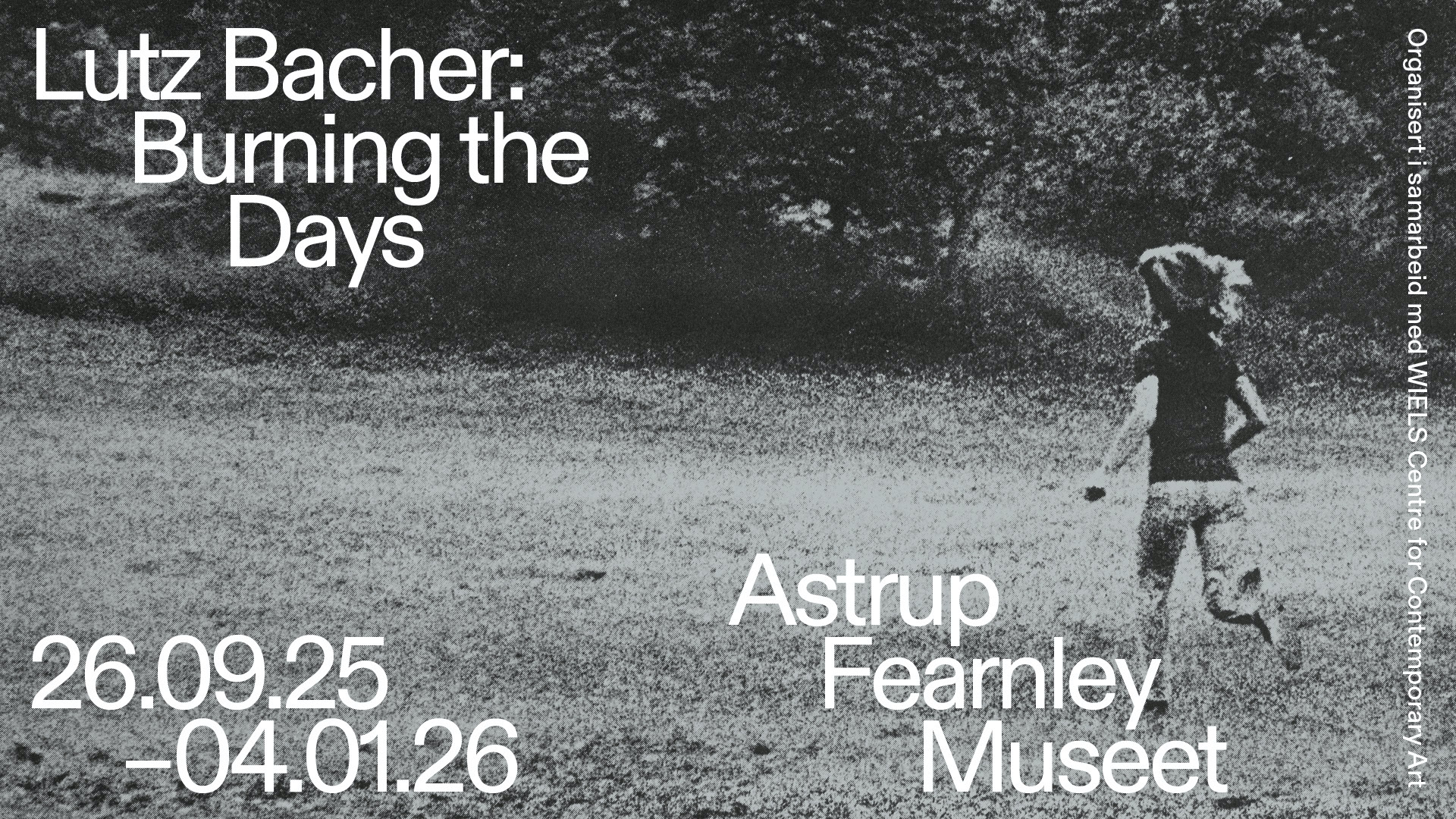




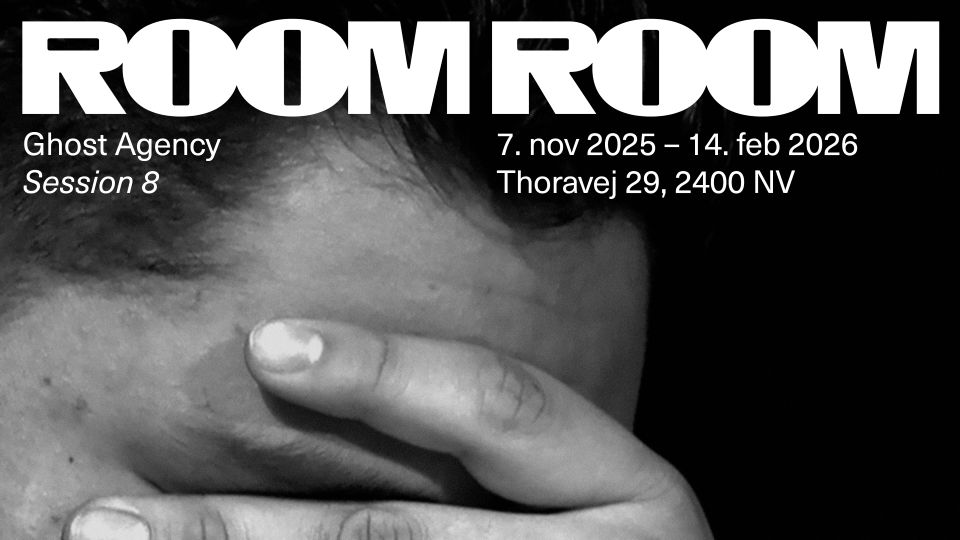




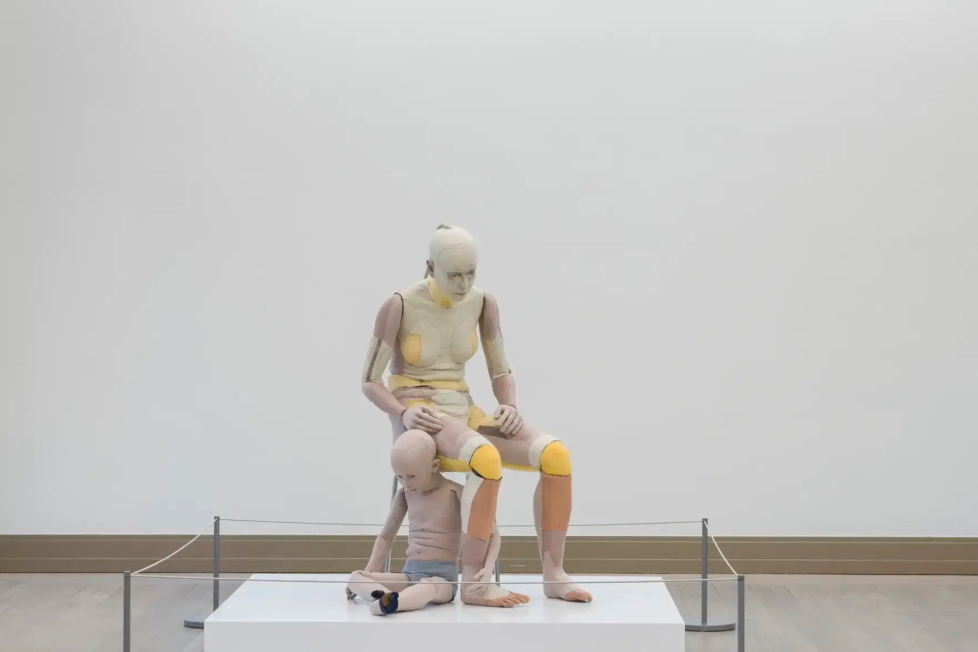
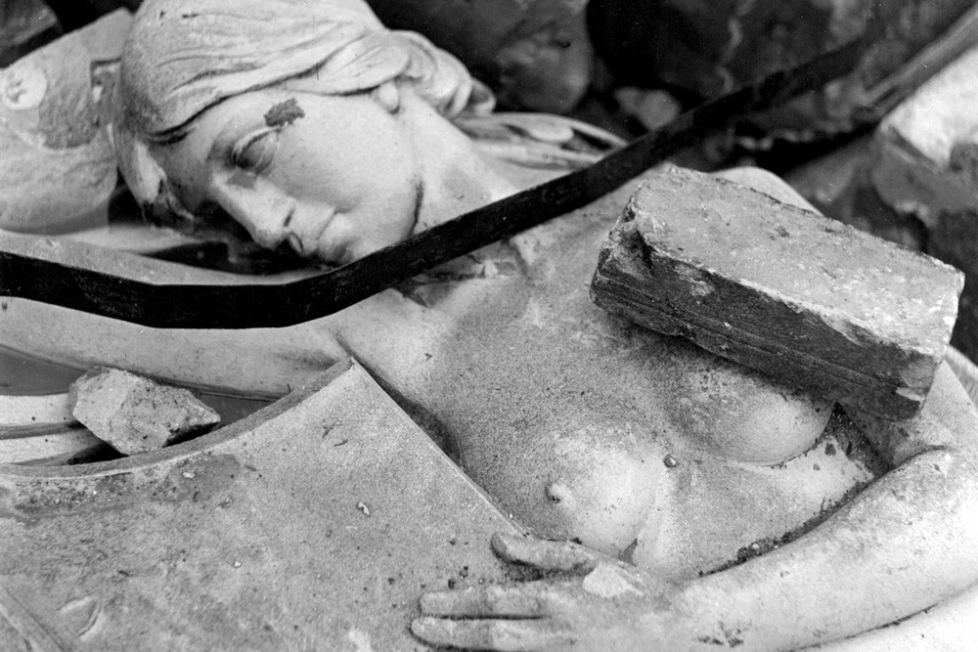
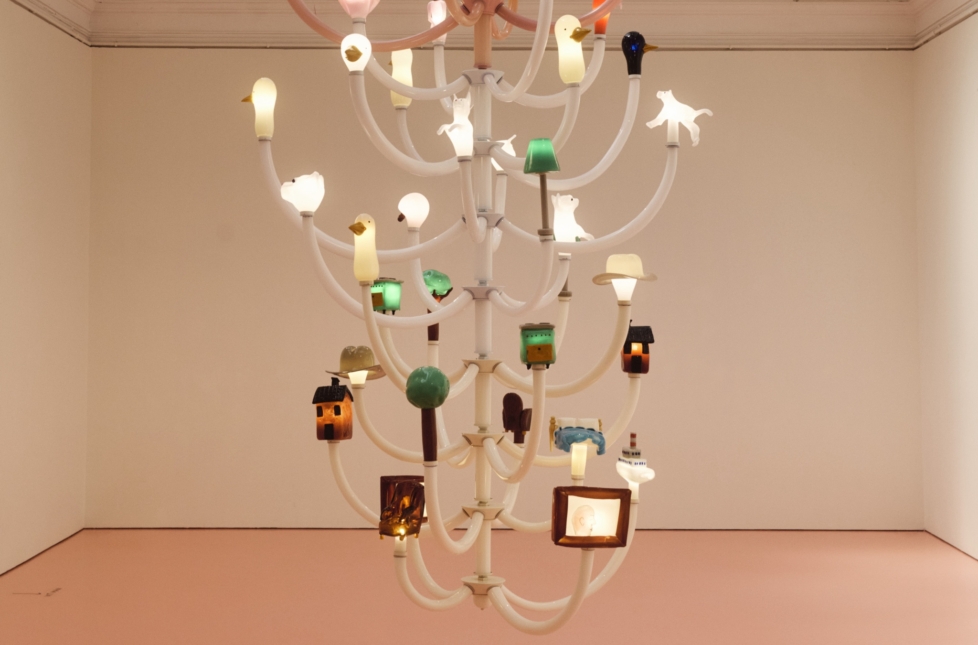
http://cdn.p138uk.thoughtmaybe.com/download/s_HyperNormalisation/HyperNormalisation.mp4